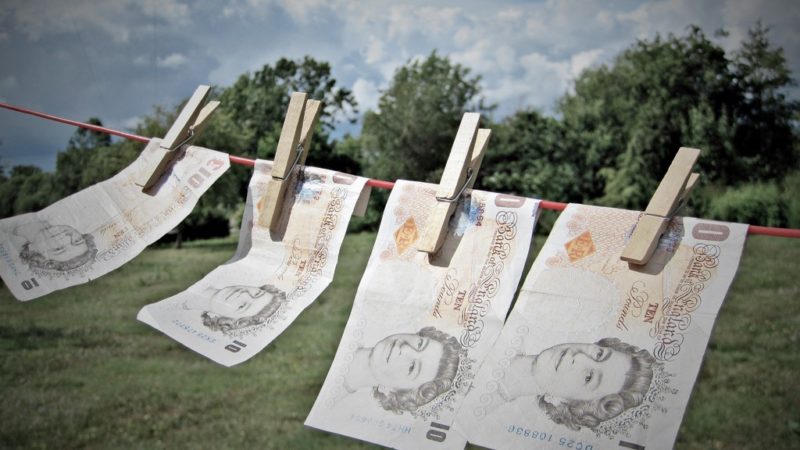Our lives are not governed by some invisible hand of fate. Rather they are governed by myths and theories that mask power and politics and advance the interests of elites

Prem Sikka is an Emeritus Professor of Accounting at the University of Essex and the University of Sheffield, a Labour member of the House of Lords, and Contributing Editor at Left Foot Forward.
Our lives are increasingly governed by economic theories that rarely withstand scrutiny, but are blighting people’s lives. Such dogmas relate to wages, inflation, competition, investment, the role of the state in society, to name but a few. They need to be debunked to create possibilities of emancipatory change.
In October 2022, the UK’s inflation rate, as measured by retail price index, peaked at 14.2% and is currently at 10.7%. Profiteering is a major cause, but neoliberals blame workers even though the average real wage is lower than in 2005. The government has cut real wages of public sector workers. This week, a report for the Institute for Public Policy Research shows that a 10.5% pay uplift for public sector workers would cost £7.2bn extra and restore public sector pay to pre-pandemic levels. If financed by borrowing, this would add between 0.14 and 0.09 percentage points to the rate of inflation. If financed by taxation, it would add almost nothing to inflation. Clearly, the government’s policies are driven by ideology and not by economics.
Contrary to neoliberal myths, numerous studies have shown that there is little link between a firm’s social performance and executive pay. Who can forget executive pay frenzy at crashing banks, BHS, Carillion, London Capital and Finance; and at companies involved in bribery, corruption and scandals. Profits at energy and food companies have ballooned due to war and price hikes rather than any management wizardry.
Water companies in England and Wales have boosted their profits by dumping raw sewage in rivers. This has caused health hazards and damaged biodiversity. In response, executive pay at water companies has rocketed. CEO pay at troubled Thames Water tripled within three years. Company executives collect bigger pay-packets because of helplessness of consumers and benevolence of the state.
Neoliberals assure workers that wealth generated by their brains and brawn will somehow trickle-down. That has not been the case. In the late 1970s, about 13.2m workers, representing around 55% of the work force, were members of trade unions. Their share of GDP in the form of wages and salaries was 65.1%. By 2022, trade union membership declined to 6.25m and workers’ share of GDP is barely 50% now even though the country has acute labour shortages. The squeeze of labour has boosted corporate profits. At Sainsbury’s, profits have more than doubled since 2019 and chief executive’s pay has tripled to £4.9 million, which is £408,000 a month, £94,000 a week, or £2,298 an hour. The average Sainsbury’s worker earns £11 an hour. The CEO collects 200 times the average shop worker pay. There is no trickle-down and wages are determined by the power of labour rather than the market for labour.
We are sold the myth of free markets and that competition somehow checks prices and consumer exploitation. Wherever you look it is monopolies and oligopolies and a handful of corporations dominate sectors. Comparatively few corporations dominate grocery, banking, trains, water, oil, gas, mobile phone, internet, pharmaceutical, fertiliser and other businesses, and have no hesitation in exploiting customers. Regulators rarely break-up giant corporations or check their predatory practices. Supermarkets have tripled their profit margin for the sale of petrol, and the regulator’s response is that companies need to display prices more clearly.
Neoliberals have long perpetuated the myth that direct involvement of the state in the economy is negative. So, the UK state invests little in infrastructure and new industries. Instead, it guarantees corporate profits, as evidenced by privatisations, outsourcing, private finance initiative (PFI), bailouts, grants and subsidies. Recent examples include £13.3bn for train companies, £24bn for oil and gas companies, £5bn for broadband providers, £500m for Jaguar Land Rover, £600m for steel, and £617m for Drax. The government support could be in the form of repayable loans or exchanged for shares in companies, but that is not the case. The restructuring of the role of the state is highly profitable for companies. They get free cash; keep resulting assets and income streams to enrich shareholders.
Neoliberals claim that capital investment by the state crowds out private investment. This neutering of the state has reduced investment in productive assets, and the UK now languishes at number 35 out of 38 OECD countries. The truth, as post-Keynesians have long-pointed out, is that investment by the state in manufacturing, green and new industries, and infrastructure stimulates the private sector because the state buys its goods and services.
Recent evidence from US shows that following the Inflation Reduction Act and direct government interventions, the economy is booming. The US .Treasury has reported a surge in construction spending for computer, electronic, and electrical manufacturing, and the “manufacturing surge has not crowded out other types of construction spending”. Manufacturing construction spending is at a six-decade high even though interest rates are rising. The state investment has facilitated between $227bn and $500bn of private investment. Yet the UK remains in the grip of classic neoliberal dogmas.
Our lives are not governed by some invisible hand of fate. Rather they are governed by myths and theories that mask power and politics and advance the interests of elites. Debunking neoliberal myths is a necessary condition for emancipatory change.
To reach hundreds of thousands of new readers we need to grow our donor base substantially.
That's why in 2024, we are seeking to generate 150 additional regular donors to support Left Foot Forward's work.
We still need another 117 people to donate to hit the target. You can help. Donate today.



